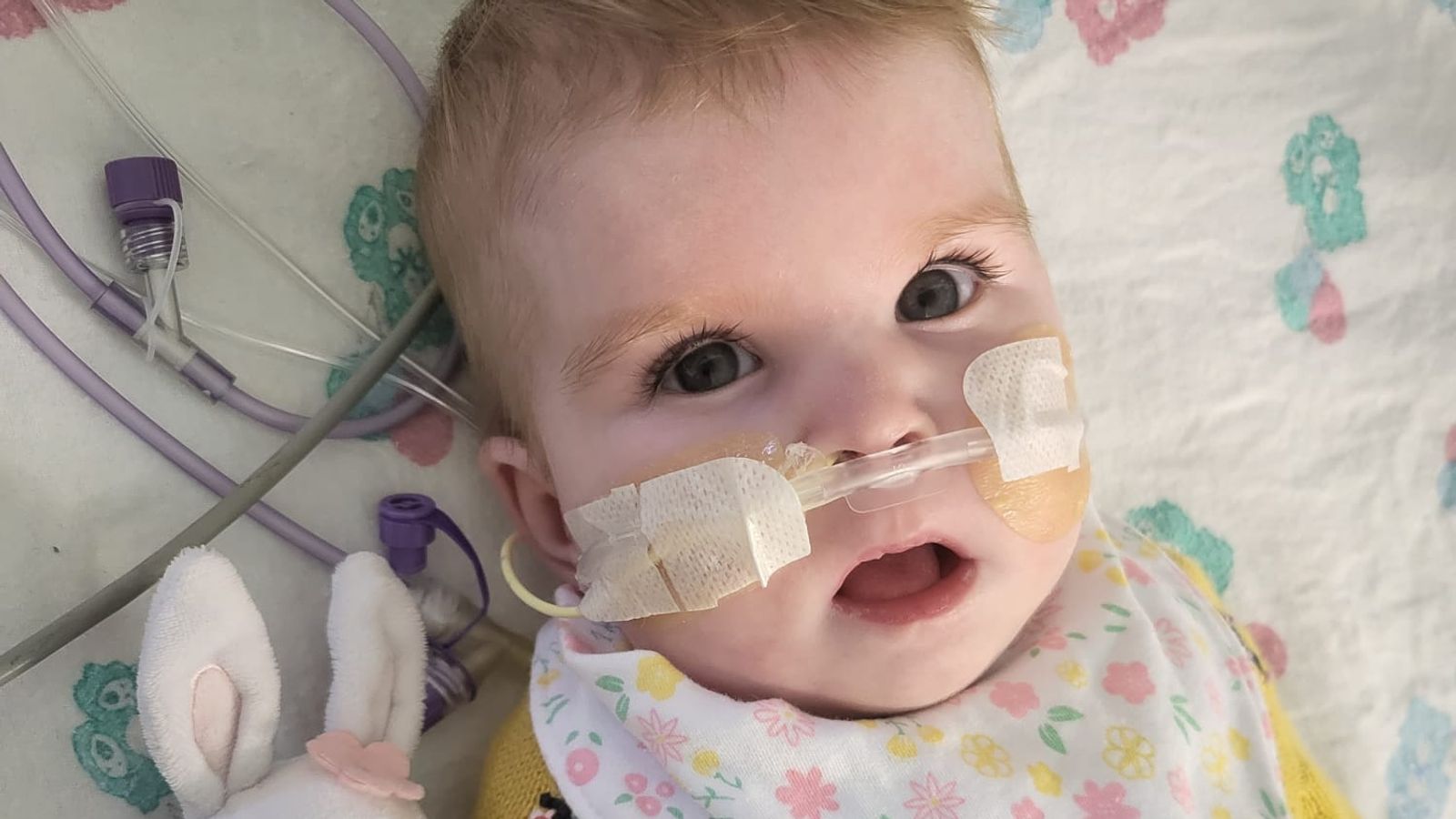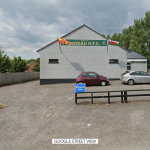The parents of a critically-ill baby have lost another legal battle after a High Court judge refused to allow them to transfer their child to Italy for treatment.
Indi Gregory, who was born in February, has mitochondrial disease, a genetic condition that saps energy.
Campaign group the Christian Legal Centre, which is supporting the couple, said on Monday a paediatric hospital in Rome had agreed to accept her for “specialist treatment”.
Mr Justice Peel concluded on Thursday, in a written ruling, that a transfer to Italy would not be in eight-month-old Indi’s best interests and dismissed the application.
He said: “In my judgment, there is no material change of circumstances, or other compelling reason, to justify reconsideration of my original order. The application is dismissed.”
Be the first to get Breaking News
Install the Sky News app for free
It comes as Queen’s Medical Centre in Nottingham, where Indi is being treated, had argued the application should be dismissed.
Indi’s parents, Dean Gregory and Claire Staniforth, plan to appeal the decision.
Gracie Spinks: Woman ‘stabbed to death’ by ‘obsessed’ man she’d reported for stalking, inquest hears
Indi Gregory: Parents of critically ill baby lose High Court legal fight to keep her on life-support
Indi Gregory: Keeping ‘dying’ baby on ventilator will ‘prolong matters’, doctor tells High Court judge
‘Embarrassed to be British’
Speaking to Sky News, Mr Gregory said they were “disappointed, heartbroken and shocked” at the “bad decision”.
Read more:
Girl meets stem cell donor who saved her life
Mother lost arm and leg in ‘horror’ incident
He said: “We don’t see how it’s in Indi’s best interests to be taken to a hospice or home to potentially pass away when we’ve got this truly beautiful offer from Italy who are willing to help and treat her.
“We’ve got two experts who both agree it’s in her best interests to have these treatments.”
Mr Gregory said it had been a “stressful” experience which he “wouldn’t wish on anybody”.
He added: “You should have more rights as a parent for your child. Doctors don’t always get it right. You’ve got doctors arguing – specialists in her condition – and it makes you think if it’s in Indi’s best interest or for the trust’s best interests.
“It makes me feel embarrassed to be British, when you have these other countries willing to help and here they won’t even help her.”
Mr Gregory said Indi is “very responsive” when not heavily sedated.
He added: “She likes her hair being stroked and listening to music settles her making her go to sleep. She’s very vocal when tube’s are not in [which] suppress her voice.”
Earlier, Mr Justice Peel, along with bosses at Queen’s Medical Centre, had ruled doctors treating Indi could lawfully limit treatment.
Barrister Emma Sutton KC, on behalf of the trust, had said the treatment Indi received caused pain and was futile.
Indi’s parents disagree but failed to persuade appeal judges to overturn that decision.
They also tried to get the European Court of Human Rights (ECHR) in Strasbourg to intervene, but their case was rejected.
Lawyers representing Indi’s parents said there has been a “material” change of circumstances since the judge ruled that doctors could limit treatment, and said Indi has a chance of a “longer life”.
The Queen’s Medical Centre previously said after the ECHR decision that the legal process had been “very difficult”.
Dr Keith Girling, medical director at Nottingham University Hospitals NHS Trust – which governs the Queen’s Medical Centre – had said the “priority now” is to provide the “best possible care to Indi” and to “support her parents”.






















